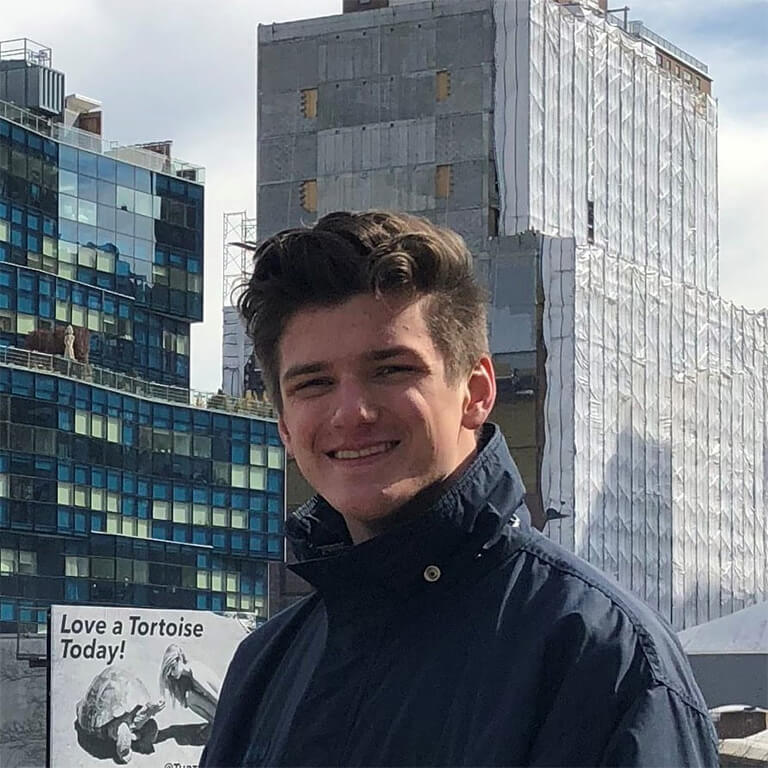In international development, viewpoints can widely differ over the role of private and public actors, as well as domestic and international investment, in growing economies worldwide. This summer, as a Policy and Research Intern at the US-ASEAN Business Council in Washington, D.C., I had the opportunity to become involved the intersection of these perspectives and discover how eager cooperation between stakeholders was not only common, and but also produced incredible results. The opportunity to pursue this internship was made possible through the generous support of the Tobias Center, who allowed me to expand my professional skills during my internship and prepare for a career in international development analysis.
Through my work at the US-ASEAN Business Council, I gained a practical understanding of how governments and businesses across borders and cultures seek mutual development. ASEAN, or the Association of Southeast Asian Nations, is a political union of ten Southeast Asian nations, which together hold over 650 million people with a variety of cultural backgrounds, as well as over $3.5 trillion US dollars in nominal GDP. The US-ASEAN Business Council engages with both ASEAN as a political entity and the governments of each of its nations on behalf of its American business members across a variety of sectors.
My work at the US-ASEAN Business Council allowed me to gain a granular knowledge of how political actors engage with the private sector to encourage development. In my internship, I had the opportunity to work with the Council’s ASEAN, Singapore, Energy, and Sustainability portfolios. The most prominent work I was involved with was drafting analytical updates. In these regular updates to the Council’s hundreds of business contacts, I would collect news for each portfolio, summarize recent policy changes in a government or business sector, and analyze the implications of these changes for American businesses. From Singapore’s June cabinet reshuffle to changes in Indonesia’s energy regulations, these updates provided me with both in-depth analytical experiences, as well as exposure to the economic dynamics of the entire region and its investment partners. As a result, I now have a better understanding of how political factors in a nation influence how investment into development flows from overseas.
The myriad of meetings, webinars, and networking opportunities at the US-ASEAN Business Council also exposed me to a range of expertise, perspectives, and potential career opportunities in international development. The Council frequently hosts summits, missions, and events connecting Southeast Asian heads of state and ministers with its American member companies. For example, I had the opportunity to help with the planning and note-taking for the Council’s Singapore Business Mission. There, a delegation of members went with the Council to meet with Singaporean leaders. Although the conversations were focused on Singapore, an already developed nation, the companies were interested in how their engagement with Singapore would lead to development throughout the rest of the region through further investment and trade. Aside from these higher-level meetings, the Council is also heavily involved in ground-level support of Southeast Asian businesses, such as the ASEAN SME (Small and Medium Enterprises) Academy programs I had the opportunity to help coordinate. The US-ASEAN Business Council also frequently engages with U.S. government secretaries, ambassadors, and other officials to help communicate how American businesses are working to develop Southeast Asian nations. Finally, I was encouraged as an intern to attend webinars and other events occurring at international conferences and D.C. thinktanks that were relevant to my portfolios. Participating in these meetings allowed me to better understand the skills and experiences that would support my continued career in international development, as well as build connections with experts and professionals throughout the policy world.
As I complete my final year as a graduate student at Indiana University, my internship at the US-ASEAN Business Council will be a defining aspect of my academic and professional growth here. Through my internship, I gained a deeper understanding of how the public and private sectors guide each other that I can apply towards my International Development concentration coursework for my Master of Public Affairs at O’Neill School of Public and Environmental Affairs. In addition, the knowledge I gained of the ASEAN region and its economic growth will be instrumental for my graduate thesis on Chinese and Japanese investment in Southeast Asia through my Master of Arts in East Asian Studies at Hamilton Lugar School of Global and International Studies. Finally, the connections I established at the Council and throughout the international policy analysis sector will be instrumental in guiding my post-graduation career opportunities. I am grateful that the Tobias Center helped me to experience the range of international development occurring at the intersection of governments and businesses across nations through this amazing internship.


